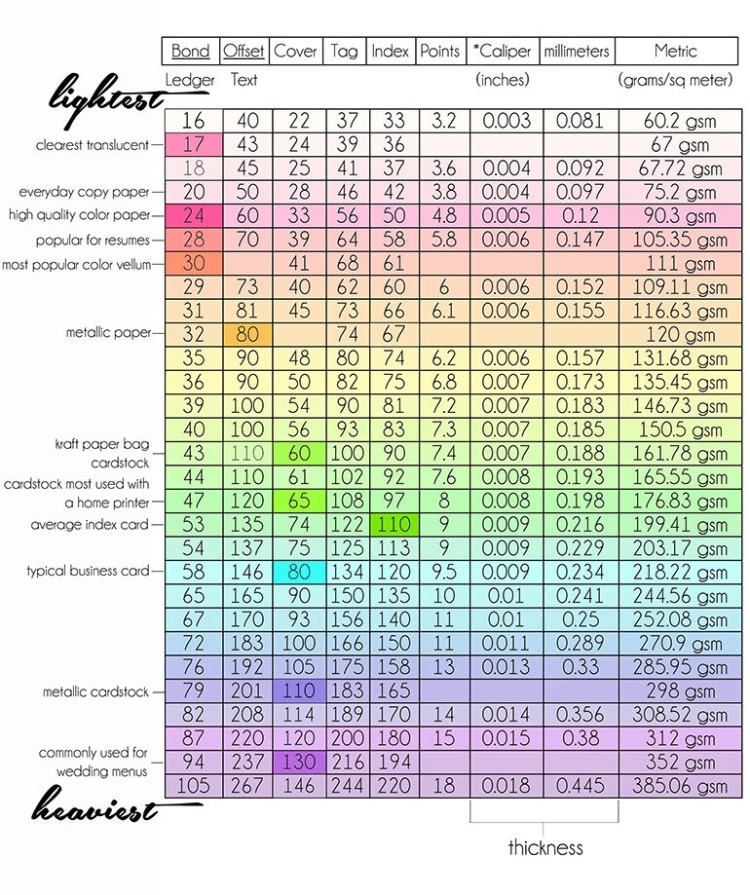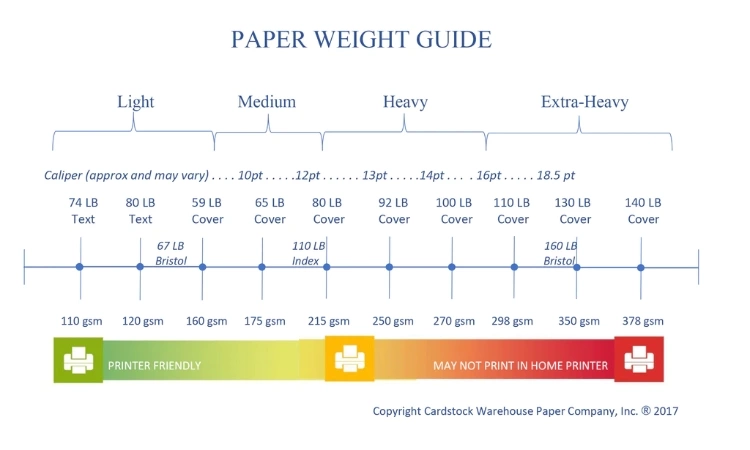How Thick Is Printer Paper
by Anthony Clark
The thickness of printer paper can vary depending on how it is made. The standard weight for most US papers is 20 pounds, which is equivalent to 200 grams per square meter (gsm). Paper made from recycled fibers tends to be lighter than virgin fiber papers and may range between 10-14 pounds or 100-140 gsm.
Printer paper is often used for printing documents. It is also sometimes called xerographic paper, meaning that it can be used on a machine that uses heat and light to create an image on the surface of the paper.
Common types of printer paper are 20 lb bond (or 20#), 24 lb bond (24#) and 32lb bond (32#). The difference in weight between these papers has to do with how thick they are.
Contents

How Thick Is Printer Paper
Most people think of printer paper as a thin sheet of paper that can easily be ripped. In fact, printer paper is significantly thicker than standard copy paper. The thickness of printer paper varies depending on the type of inkjet or laser printer being used, but it typically ranges from 60 to 80 grams per square meter (g/m2). This is significantly thicker than the 20-30 g/m2 thickness of copy paper.
The Thickness of Printing Paper List

The thickness of printing paper is a topic that many people are interested in learning more about. It's not often that you see someone ask what the thickness of printing paper is, but it does happen every now and again.
The following article will give an overview of some common types of printers and their corresponding average sheet weights, as well as other information on this topic.
The thickness of printing paper is a crucial part when it comes to designing. There are many different types of paper that can be used for print design, but the most popular type is 20lb bond paper.
This type of paper has a nice weight and thickness, which makes it perfect for all sorts of projects. The next blog post will go into more detail about what this specific type of paper entails.
- The average printer paper thickness is 20lbs
- Paper with a weight of 24 lbs is often used for brochures and posters due to its durability
- A paper weight of 32 lbs is very thick and most commonly used in printing photographs or artwork that will be framed
- A paper weight of 40 lb is the heaviest, but it can still be easily torn by hand without scissors
- Keep in mind that different printers use different weights when they print on paper
- Paper with a thickness less than 20lb can't handle much ink before it starts to bleed through the backside and smudge what's printed on the front side.
Is a4 Paper the Same Thickness as Printer Paper?
A4 paper is a standard size of printer paper. The dimensions of A4 paper are 210mm x 297mm. The thickness of A4 paper varies depending on the manufacturer, but it is typically around 0.08mm. Printer paper can be slightly thinner or thicker than A4 paper, but the differences are usually not significant.
Is Inkjet Paper Thicker?
One common question we get asked is if inkjet paper is thicker than regular copy paper. The answer is yes! Inkjet paper is designed to be thicker and more absorbent to prevent smudging and bleeding when printing. This also means that it can be a bit more difficult to feed into some printers. If you're having trouble feeding inkjet paper into your printer, try using a heavier weight paper or increasing the paper thickness setting in your printer's settings menu.
Which paper is good for printing?

There are many papers that can be used for printing, but not all papers are created equal. Some papers are better suited for certain types of printing than others. Here is a guide to help you choose the best paper for your needs:
- If you need to print text documents, look for a printer paper that is designed specifically for this purpose. This type of paper will usually have a smooth surface that is ideal for printing text.
- If you need to print photos or other graphics, look for a photo paper. Photo papers usually have a glossy or semi-glossy finish that will make your photos look their best.
- If you need to print documents that will be read often, consider using a high-quality bond paper. Bond papers are designed to be durable and resist wear and tear.
- If you need to print documents that will be displayed, look for a paper with a matte finish. Matte papers have a non-reflective surface that is ideal for displaying documents in frames or on bulletin boards.
No matter what type of printing you need to do, there is a paper that is right for the job. Be sure to consider your needs before purchasing printer paper so that you can get the best results.
Can You Put Any Paper in a Printer?
You can't just put any old paper in your printer and expect it to work properly. In fact, using the wrong type of paper can actually damage your printer. So what kind of paper should you use in your printer?
The most important factor to consider when choosing printer paper is the weight. Paperweight is measured in pounds per ream (lb.) and is usually indicated on the packaging. The thicker the paper, the higher the pound rating will be. For example, standard copy paper has a weight of 20 lb., while cardstock generally ranges from 60-120 lb.
Using paper that's too heavy for your printer can cause jams and other issues. On the other hand, using paper that's too light can also cause problems. The paper might curl or jam in the printer, or the print quality might be poor.
In general, it's best to use paper that's around 20-24 lb. for most printers. This weight is thick enough to prevent jams and produce high-quality prints, but not so thick that it will damage your printer.
If you're not sure what kind of paper to use in your printer, check the printer's manual or contact the manufacturer. They should be able to give you specific recommendations.
Now that you know what kind of paper to use in your printer, it's time to stock up! Visit an office supply store or shop online for a variety of printer-friendly papers.
Why Can't We Fold Paper 7 Times?
The idea of paper folding 7 times may seem like an impossible feat, but it is possible! The internet has plenty of videos and articles that show how to fold paper in such a way.
Some people say that you can't fold it more than 5 or 6 times because the fibers become too thin and fragile, which makes them tear when folded again.
There are many theories about why we can't fold paper 7 times; one says that if we could do so then the Earth's gravity would be stronger and life wouldn't exist on Earth (which sounds like a pretty good reason to me).
Others say that there is no way to make sure all the folds were made evenly. Whatever your opinion may be, there are ways around this obstacle by using other.
Conclusion
After reading this article and learning about how thick is printer paper, you may want to consider the thickness of your printing.
The type of paper that you use can have a significant impact on both print quality and cost per page. If you are not sure what thickness is best for your needs, please contact us at any time so we can help! We look forward to hearing from you soon.
 |  |  |  |

About Anthony Clark
Anthony Clark always had a passion for digital drawing and printing ever since he was young. He would wander around his parents' house in Phoenix, Arizona drawing various things with his older digital tablet. Be it just a memory collection or a portrayal of anything: objects, parents, school, events, etc. He received his BA in Graphic Design at San Jose State University - the heart of Silicon Valley. Now Mr. Clark is excited to present his experience coupled with some colorful dips to help shape the future of printing.
Thoughts on "How Thick Is Printer Paper"
 |  |  |  |
Get some FREE Gifts. Or latest free printing books here.
Disable Ad block to reveal all the secret. Once done, hit a button below
 |  |  |  |